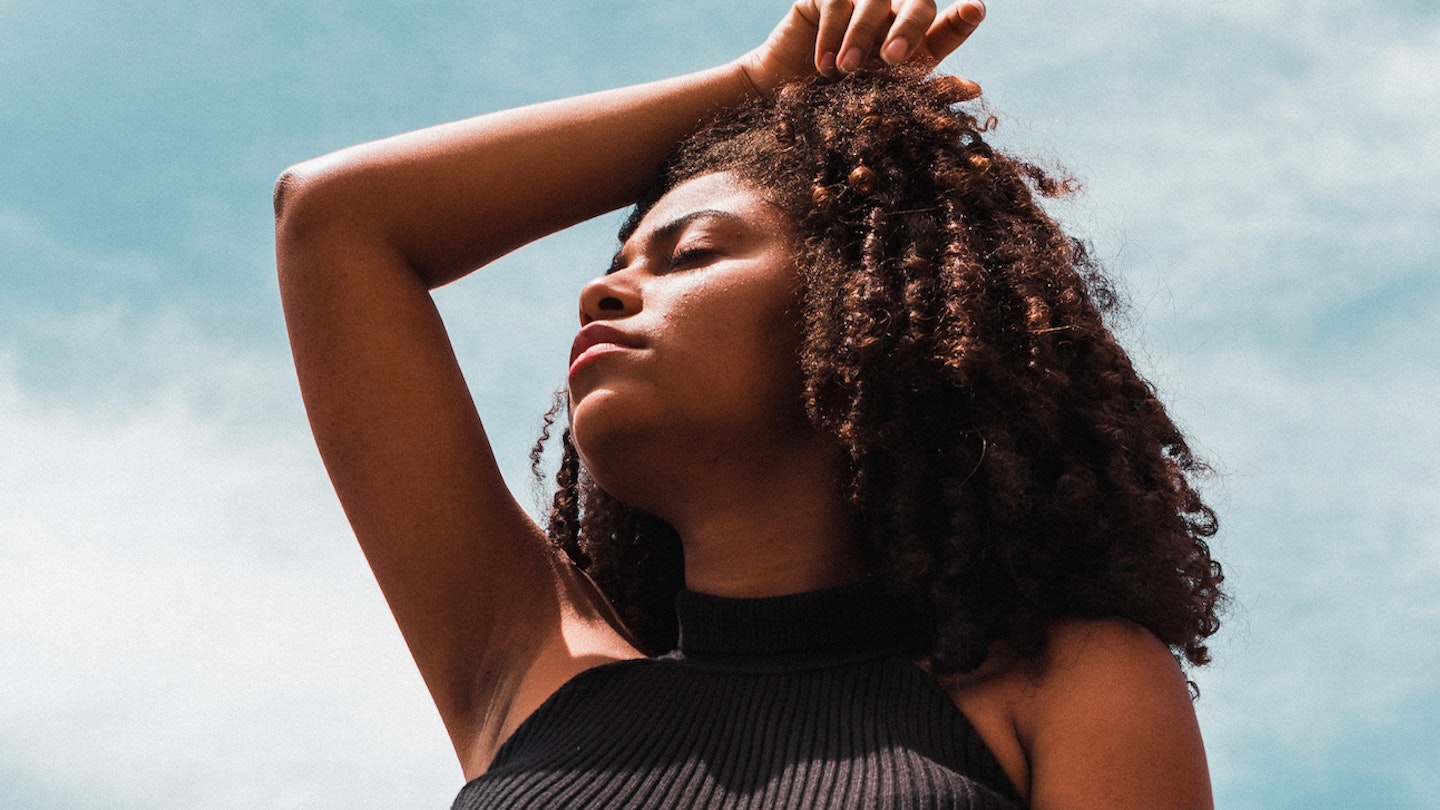It's important to note that the lack of provision for Black hair in Hollywood and the film and fashion industry at large is not a new problem. It is a historic and systemic issue that is grabbing headlines now because it is being talked about more openly and publicly. In 2019 stars including Natasha Rothwell, Gabrielle Union and Yvette Nicole Brown took to Twitter to discuss their experiences on set, aiming to bring these daily struggles into conversation with the hashtag #ActingWhileBlack. In a Tweet that has garnered 5.3K retweets and over 20.7K likes Yvette Nicole Brown wrote, 'Most black actresses come to a new set w/ their hair done (me) or bring their wigs & clip-ins w/them. It's either that or take a chance that you will look crazy on screen.'
According to celebrity hair stylist Lorraine Dublin, a go-to stylist for the likes of Serena Williams and Kelly Rowland, the stark issue plaguing Hollywood and the wider film industry, is a lack of training across the board as well as a lack of diversity when it comes to the hiring of hair professionals. Lorraine says, 'the biggest problem is that a lot of hairstylists in the industry are not able to work with all types of hair. Can you really be considered a professional hairdresser if you can’t work with all hair types?'
'It puts the message out to people of colour that they are less than or an inconvenience as their hair needs have not been considered'
'When working on a film set if you are only able to style European hair you’ve already alienated all of the actors of colour due to their hair textures. Why would someone who is able to work proficiently with all hair types not be offered the job?'
The Big Impact
The film industry has a responsibility to ensure the hair services hired serve up a high-level skillset that accommodates every single hair type. Where this responsibility is neglected it is the actor, model or presenter that suffers. Lorraine clarifies, 'when this happens it puts the message out to people of colour that they are less than or an inconvenience as their hair needs have not been considered. This happens with models who are more often than not told to bring their own hair and makeup products to shoots or shows because the hairstylists and make-up artists more often than not do not have the products for their skin and hair.'
The Hair Skills Lacking In The Film Industry
For Lorraine, the onus is, in part, on the hairstylists themselves, to train in styling afro hair and ensure they are confident in their skillset. 'The issue is complex. If you are a salon-based hairstylist and all your clients are Caucasian then I understand why you would not be in a hurry to learn to do Afro hair. If you're a session stylist working on fashion shows, films/TV, ad campaigns, music videos etc you should be able to work with Afro hair because we live in a multicultural society and you will be working with all hair types so you should be able to confidently style all hair types.'

More importantly though, Lorraine clarifies, it is the responsibility of the teams in charge of booking talent to ensure that, in a world where you can't currently count on every hair stylist to be able to style Black hair, that the hair team hired caters adequeately for every artiste on set. 'The issue is with the people that are booking creatives for these roles and this is the institutional racism that is at the centre of discussions. For example, should you be heading up hair on a fashion show if a percentage of the models have Afro hair and you can't style afro hair? Even if you hire specialists to work on the afro hair models how can you effectively plan looks if you don't know how to work with the hair texture?'
The Changes We Need To See Happen
Lorraine has first-hand experience of the lack of diversity in the hair industry. 'Throughout my career I have been hired for several jobs during London Fashion Week. In these jobs I am always only asked to work with the models of colour - even though I have vast experience of working with all hair types. Hairstylists should all be able to work with all hair types.'
'If you are able to work professionally with European hair then you should be equally able to work with Afro hair'
'There needs to be inclusivity and people should be booked on merit. Hairstylists that are black are automatically put into the 'Afro hair' box and thus tend to get overlooked for mainstream jobs (unless it's a black cast). All Black session stylists can work with all hair types - fact! Commissioners need to make sure that creatives booked onto a job can work on it from conception to the end and be able to do the job in its entirety and be able to work on all the individuals involved. In the case of hairdressing, if you are able to work professionally with European hair then you should be equally able to work with Afro hair. There are an abundance of courses. If not then you should not be hired for that particular job if models or artistes with Afro hair are going to be present.'
First Steps
As the hairdressing is put under the microscope worldwide, a petition is underway in the UK to make training in Afro and textured hair compulsory in the Hairdressing NVQ syllabus. Jemima Bradley, a hairdresser at Blue Tit Salons in London, kicked off the initiative and it has thus far garnered over 17,000 signatures. To sign the petition yourself, please click here.
READ MORE: Clara Amfo: 'Being A Joyous Black Person Is Radical'
READ MORE: Make A Grab For These Eco-Friendly And Reef-Safe Sun Care Buys Now
